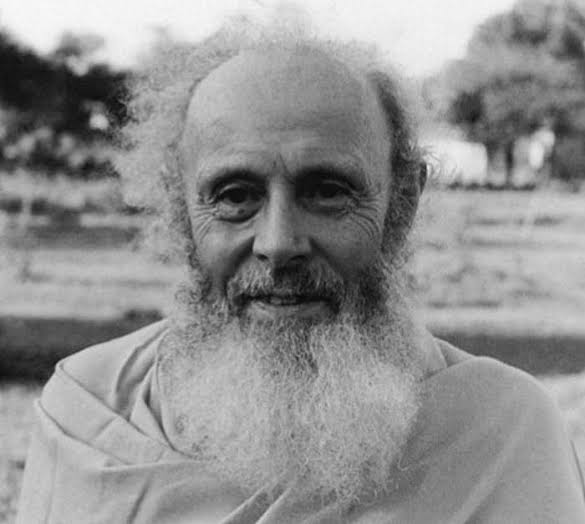In many of Charles’ meditation retreats beginning around 1988, he would share a video recording of Abhisiktananda (Henri Le Saux’s Advaita name). Charles remarked in one of his letters to Lawrence Freeman that some retreatants would become quite upset with the teachings in this video. For Charles who became passionate about the East-West dialogue in his correspondence with other contemplatives such as John Main, Thomas Keating, Pascaline Coff, Lawrence Freeman, and Bede Griffiths these teaching were essential in highlighting the need not to become attached to one’s religion. The story of Henri Le Saux deep devotion to two very different faiths caused an inner torment. From this struggle he learned that towards the end of one’s contemplative journey, one’s attachment to one’s religion must also be shed in order to fully embrace the unity of God. In this light, Charles embraced all religions as legitimate paths to God.
Henri Le Saux, also known as Abhishiktananda, was a French Benedictine monk who spent much of his life in India studying and practicing Eastern spirituality, particularly Advaita Vedanta. Henri Le Saux was particularly moved by sitting with Ramana Maharshi.
Some of the most important teachings of Henri Le Saux include:
- The importance of experiencing God for oneself: Le Saux believed that the most important thing in spirituality was not intellectual knowledge, but direct experience of God. He saw this experience as something that could be accessed by people of all religions, and he encouraged individuals to pursue it for themselves.
- The unity of all religions: Le Saux believed that all religions ultimately pointed to the same ultimate reality, even if they used different terminology and practices. He believed that it was possible to see the similarities between religions and to find common ground.
- The value of silence and solitude: Le Saux believed that it was important to spend time in silence and solitude in order to deepen one’s spiritual practice. He felt that this was particularly important for people living in the modern world, where there are many distractions and pressures.
- The need to integrate Eastern and Western spirituality: Le Saux believed that both Eastern and Western spiritual traditions had something to offer, and that it was important to find ways to integrate them. He felt that this integration could help people find a more holistic understanding of spirituality.
- The importance of letting go of ego: Le Saux believed that the ego was a major obstacle to spiritual growth, and that it was important to let go of it in order to experience God. He believed that this was a difficult but essential part of the spiritual journey.
The following is one of Charles’ many letters to Dom Lawrence Freeman expressing concern of the impact of Abhisiktananda’s teachings.
